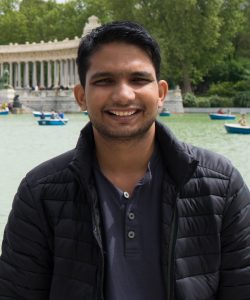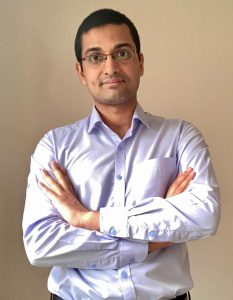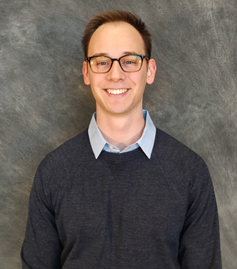ME researchers take second place in national Hackathon competition
Author: Nick Fetty
Author: Nick Fetty
A mechanical engineering (ME) team of two graduate students and a postdoctoral researcher took second place at the national Hackathon competition hosted earlier this month by the American Society of Mechanical Engineers’ (ASME) Computers & Information in Engineering Division.

The team consisted of Ankush Mishra, Ph.D. student; Venkat Nemani, postdoctoral research associate; and Adam Thelen, Ph.D. student. All three researchers work in the System Reliability and Safety Laboratory, overseen by ME associate professor Chao Hu.
The team tackled a problem statement proposed by the Siemens Corporation. The problem statement had two parts: first, the researchers developed a machine learning model to predict an output given 36 different feature inputs; and second, the researchers created a scheduling algorithm to optimize the time taken to complete a set of given tasks using the output from the first sub-problem.
Each of the researchers tackled a different aspect of the task. Mishra, who holds a masters in aerospace engineering from the Indian Institute of Technology Madras, developed a pseudocode for the scheduling algorithm based on the available literature and research.

“I got to know about some of the machine learning algorithms and learned different algorithms for scheduling optimization,” said Mishra. “Moreover, the experience of working and trying to solve an industrial problem within a very limited time [roughly 24 hours] gives us a different perspective which we rarely experience in our daily research activity.”
Nemani, who holds a Ph.D. in ME from the University of Illinois Urbana-Champaign, helped the team to implement their pseudocode and also developed a Gantt chart to help them explain their scheduling results.
“We were given additional points for showing why a certain model works instead of just showing how it works,” said Nemani. “Also, for the second part of the problem, we developed our own algorithm instead of using pre-developed software and algorithms which was very much appreciated by the panel.”

Thelen, who holds his B.S. in ME from Iowa State University, conducted a parametric study for an elastic net machine learning model.
“I investigated the magnitude of the feature weights from the machine learning model to see which of the data features mattered the most when predicting the time it takes to test a part. Our findings were appreciated by the panel,” said Thelen.
The Iowa State University researchers competed against six other teams during the virtual competition. They took home $800 in prize money because of their second-place finish.